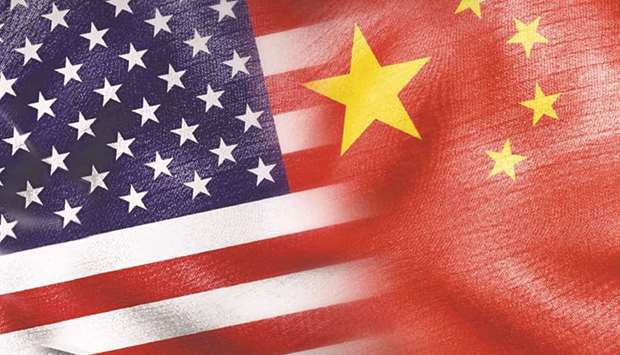The US and China are expected to use Asia’s top security meeting this week to trade blows over everything from Taiwan’s sovereignty to the war in Ukraine, although both sides have indicated a willingness to discuss managing differences.
The Shangri-La Dialogue, which attracts top-level military officials, diplomats and weapons makers from around the globe, will take place June 10-12 in Singapore, the first time the event has been held since 2019 after it was postponed twice because of Covid-19.
Ukraine’s President Volodymyr Zelensky will address the meeting in a virtual session tomorrow, organisers said.
On the sidelines of the summit, US Defence Secretary Lloyd Austin and Chinese Minister of National Defence General Wei Fenghe are expected to hold their first face-to-face meeting since President Joe Biden took office.
“We expect, from our perspective, the substance of that meeting to be focused on managing competition in regional and global issues,” a senior US official said.
The official said the focus would be on trying to set guard rails in the tense relationship between the two countries and ensure that issues would not spill over into some sort of military misunderstanding or miscommunication.
“We are taking every effort to ensure that it is a professional, substantive meeting and we are going to be talking about some very serious issues, but no desire on the part of the US to make a public spectacle,” the official said.
Chinese media have also said Beijing will use the meeting to discuss co-operation with the US.
Austin and Wei are likely to then use speeches over the weekend to re-affirm their commitment to the Asia-Pacific region, while delivering some pointed remarks in the direction of the other.
Relations between China and the US have been tense in recent months, with the world’s two largest economies clashing over everything from Chinese belligerence towards Taiwan, its military activity in the South China Sea and Beijing’s attempts to expand influence in the Pacific region.
“The key issue this year is inevitably going to be the US-China competitive relationship,” said Meia Nouwens, senior fellow for Chinese defence policy and military modernisation at The International Institute for Strategic Studies, the think tank that organises the event.
“There’s a new sense of urgency with regards to the People’s Liberation Army’s ongoing modernisation and the assertiveness that we’ve seen from China in the last two years.”
Although the summit is focused on Asian security issues, Russia’s invasion of Ukraine will remain central to discussions.
The conflict, which has killed tens of thousands of people, uprooted millions and reduced cities to rubble, entered its 100th day last week.
Ukraine will send a delegation to the meeting but the Russians will not be attending, according to a source familiar with the list of attendees.
“American participants will use the occasion to criticise China’s strategic partnership with Russia,” said Li Mingjiang, associate professor at the S Rajaratnam School of International Studies in Singapore.
“We’ll see some inferences of the China-Russia partnership as a coalition of autocracies... China will defend their relationship with Russia, their position and policy in response to Ukraine.”

US-China
